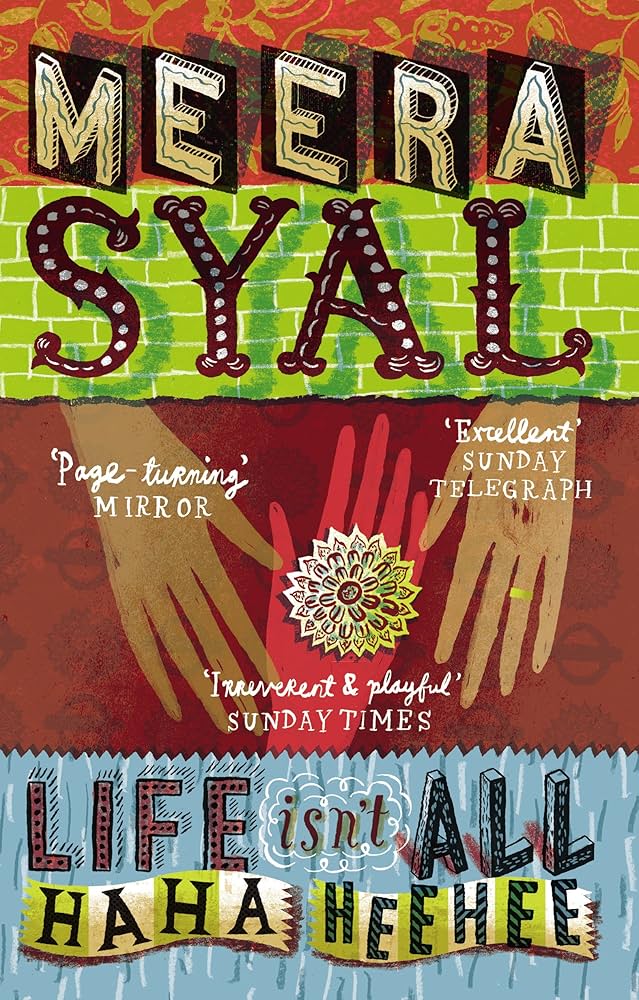
Life isn’t All Haha Heehee
Is Life Fun When You Don’t Always Look Twenty One?
Maybe I cursed myself when I denounced those ‘book over movie’ snobs, or maybe I’m just pickier than I thought. Meera Syal’s second novel Life isn’t All Haha Heehee feels like a kind of unofficial biographical sequel to Anita and Me. Although Life isn’t… deals with heavier themes, it still has that dark comedy which she does so well. Her prose is, as always, unquestionably phenomenal, but the BBC miniseries adaptation fell short for me. The characters just didn’t match the ones in the book. Okay, okay, I’m a hypocrite. Now go read the book first.
Life isn’t… follows the lives of three best friends who grew up together in the Punjabi community of East London. Sunita the once-activist who is a failed law student and unhappy wife. Tania, former school yard scrapper who is now an aspiring TV/film director. Then there is Chila, dictionary definition sweet, but not the kind that fails the Sexy Lamp test. The story opens with Chila’s wedding to Deepak, a joyous event since her family had written her off as too dumb to be marriageable. It is Chila’s innocence which inspires Tania’s boss to give Tania her own film project. A documentary about love in the South Asian community. This tokenism which is the antithesis of what Tania wants to build her career on, is precisely what launches it. But her film’s success also ignites a series of betrayals leaving the three women to fight for their own happiness amidst splintered friendships.
As always, Syal puts the South Asian experience at the forefront without isolating readers, or worse, writing something hollow where the reader is merely observing the ‘other.’ Sorrows, joys, and struggles are borderless even when they come in different shades. Despite landing on different paths, it was once an unspoken rule of their friendship that the three women would be united by shared domesticity: husbands, children, and as Chila said, getting old and saggy together.
Unfortunately the phrase ‘you let yourself go’ is as much an accusation as a lament. So many scenes in both versions had me cringing, like when her husband Akash calls Sunita a cliche, dumpy housewife after she cuts her hair and loses weight. The pressure of having to do and be everything and please everyone – all before the inevitable decline into crone-hood at thirty six – was frustratingly relatable. The constant references to Tania’s beauty is just further proof of an uncomfortable truth. Audiences would rather learn about a culture from someone who is an approachable mix of exotic and conventionally beautiful.
Sadly, this nuance and even the darkly humorous aspects were lost in the adaptation or conveyed in flat, plot exposition-type dialogue. The miniseries gives too much space to their messy love lives when love is just a foil for how complicated it really is to live life on your own terms. That said, don’t write off the series entirely. It’s part of a body of work where the heavy lifting isn’t done by South Asian cliches of colors, one-dimensionally crazy parents, and spontaneous dance numbers.
Also, don’t forget how rare and refreshing it is to read a story where women in their thirties are still searching for happiness instead of comparison shopping for nursing homes.
Order the book here and support us! The work behind poco.lit. is done by us – Anna und Lucy. If you’d like to order this book and want to support us at the same time, you can do so from here and we will get a small commission – but the price you pay will be unaffected.

